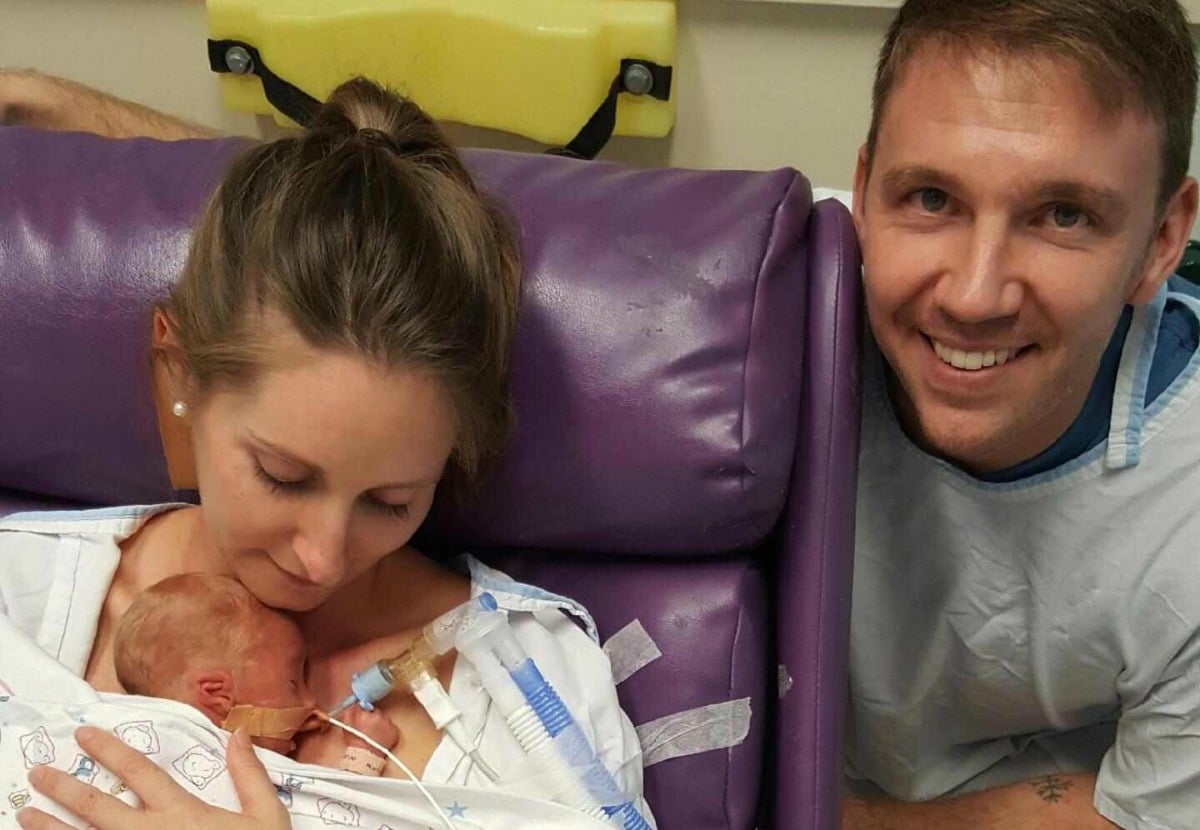My baby was born on New Year’s Eve, 2016, when I was only 28 weeks pregnant.
I had gone to the GP early in the morning with abdominal pain, which was quickly dismissed as indigestion. I was told to go home, rest and relax. Hours later, at the hospital, I was diagnosed with severe HELLP syndrome, a life-threatening pregnancy complication. We were informed that the only way to stop the progression of the fatal syndrome was to deliver our baby via emergency caesarean. After receiving the diagnosis, everything became a hazy blur of IV lines, injections and tubes. I clearly remember thinking, as they rushed my son out of the operating theatre to the Neonatal Intensive Care Unit, this isn’t how it was supposed to happen.
Everyday, I have relived this memory, over and over in my mind. I try to picture every detail, as if I am searching for some kind of clue that will make sense of it all.
The birth of my baby left me feeling overwhelmed with grief and guilt. I was mourning the abrupt ending to my pregnancy and the loss of a natural birth experience. I was ashamed that I had been unable to safety carry and deliver my baby. I felt that in my first acts of motherhood, I had failed.
LISTEN: Women share their diverse birth stories on Hello Bump. Post continues after audio.
When confronted with my feelings about the birth, friends and family, even health professionals, would assure me that all that mattered was that my baby was alive and well. They believed that I should simply feel grateful that my son was receiving the care he needed and that he would soon be coming home. They thought they were reassuring me but, in essence, what they had done was silence me, and told me that my feelings were invalid.
My experience and my feelings about my birth are not unique. I am just one of millions of women around the world who have negative or traumatic births. And the idea that ‘all that matters is a healthy baby’ is a sentiment I see echoed in responses to media stories about difficult births. A recent story about the use of the medical term ‘failure to progress’ was met with comments that implied that the only emotion a woman is entitled to feel about her birth experience is gratitude.


Top Comments
You suffered actual trauma. Of course that will take time to get overThe other suffered...what exactly? A case of "I don't like the medical terminology used"?
In saying that, would you still have felt like a failure if you had not expected birth to happen a certain way? I think that study says it all, really - only a little over half of women get the experience they expected. Maybe there'd be less "trauma" if society stopped telling women labour should be a certain way. No wonder they feel like failures.
Please can you publish my detailed comment from last night, as my experience was so very similar to Phoebe's? I put a lot of heart and thought into it. Thanks.